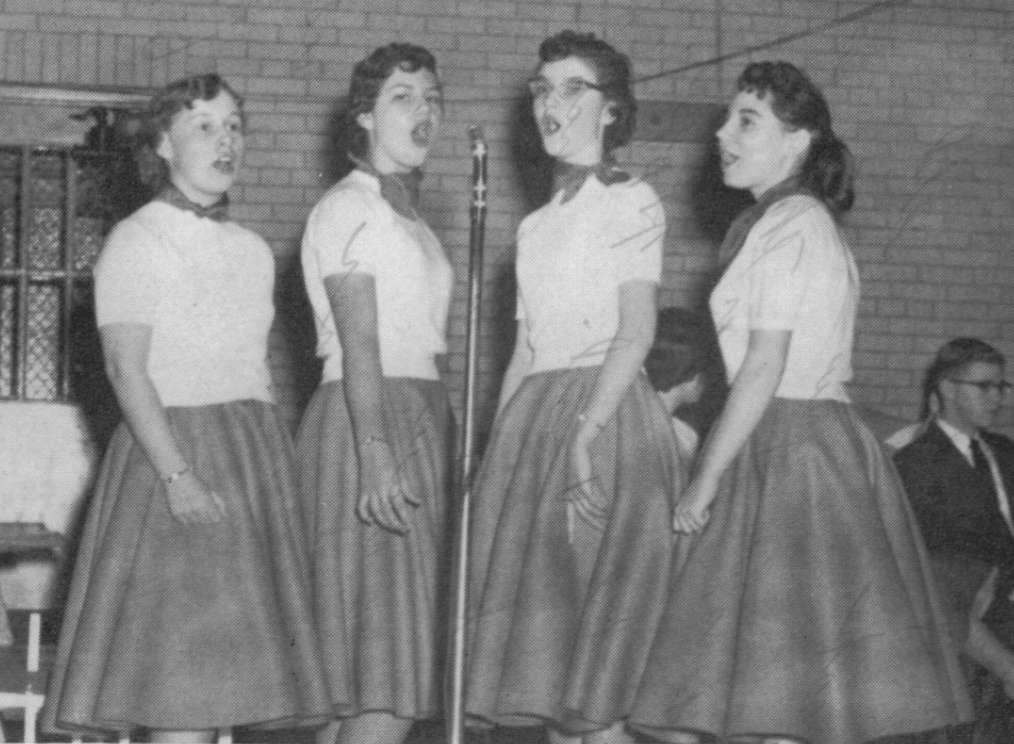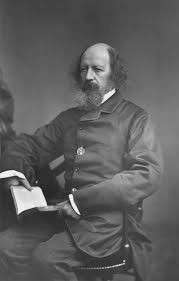REVIEW POTPOURRI: the Gingersnaps & Alfred Tennyson
 by Peter Cates
by Peter Cates
Gingersnaps
A 1956 seven-inch 45 (Kapp K-226X) features the Gingersnaps, four women from Sheboygan, Wisconsin, who had been friends in high school. They perform two novelty bubblegum pop songs, Gingerbread; and Lenny! Lenny! This record was for me an intriguing historic curiosity because, having been born in 1951, the ‘50s have remained an immensely fascinating time warp.
The father of one of the women was friendly with the Chordettes, also from Sheboygan, whose megahit records Mister Sandman; and Lollipop Lollipop each sold over a million copies in 1953-54 and helped these singers get bookings for concerts and recording sessions, although only this record and two or three other discs were released.
Musically speaking, the vocals and arrangements weren’t half bad, the women singing with sincerity, but the results were derivative and sounding too much like their fellow Sheboygans, the Chordettes.
Two other groups with the name Gingersnaps need to be mentioned to avoid confusion. One is an African-American blues group of singers from the Deep South who signed a contract with RCA Victor in 1945 and recorded a few 78s, the second consisting of musicians from Ukraine who started performing as an electronic rock group in New York City in 2019.
Alfred Tennyson
Alfred (Lord) Tennyson (1809-1892) published a book length poem In Memoriam in 1850 as a tribute to a close friend Arthur Henry Hallam who died from a stroke in 1833, at the age of 22. The poem was not only a powerful elegy about the loss of a friend but also a critique on the “modern age” in England during the age of Queen Victoria (1819-1901) when religious faith was increasingly seen as being replaced by hard cold materialism, prosperity and scientific progress. Thus a certain cynicism and despair among more sensitive souls was on the rise.
This cynicism and despair is touched on quite brilliantly and astutely in some verses on the life of a couple who have been married for decades and these verses just might resonate in the world we live in today:
“These two-they dwelt with eye on eye,
Their hearts of old have beat in tune,
Their meetings made December June,
Their every parting was to die.
“Their love has never passed away;
The days she never can forget
Are earnest that he loves her yet,
Whate’er the faithless people say.
“Her life is lone, he sits apart,
He loves her yet, she will not weep,
Tho’ rapt in matters dark and deep
He seems to slight her simple heart.”
Tennyson implied a certain sarcasm about the oafish husband being “rapt in matters dark and deep” and seeming “to slight her simple heart.” This poet conveyed a tough yet needed realism about marriage among our ancestors, the perils of living under the same roof for decades and the suffering so often occurring between husbands and wives having to live under that same roof. And he articulated these thematic concerns with power and eloquence.
Responsible journalism is hard work!
It is also expensive!
If you enjoy reading The Town Line and the good news we bring you each week, would you consider a donation to help us continue the work we’re doing?
The Town Line is a 501(c)(3) nonprofit private foundation, and all donations are tax deductible under the Internal Revenue Service code.
To help, please visit our online donation page or mail a check payable to The Town Line, PO Box 89, South China, ME 04358. Your contribution is appreciated!




Leave a Reply
Want to join the discussion?Feel free to contribute!